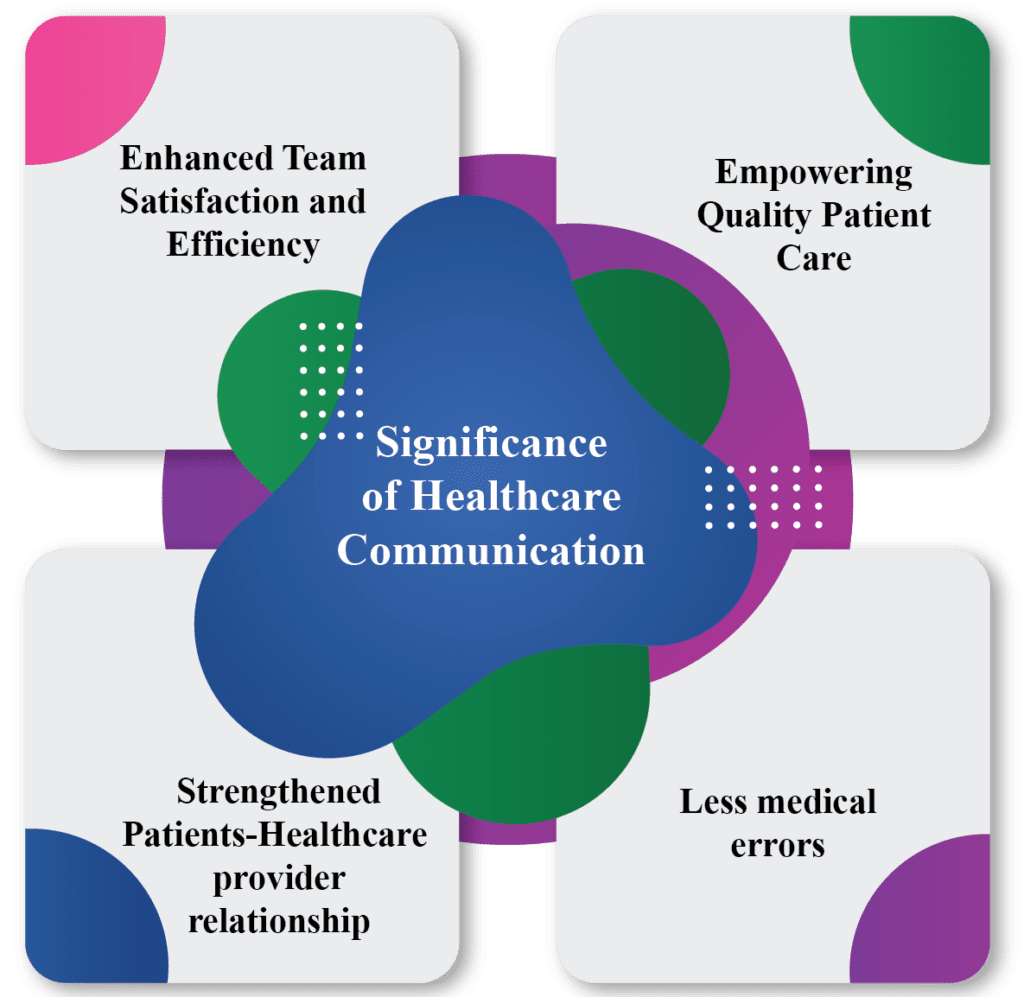Healthcare Communication: significance & areas of concern
Healthcare communications system forms an atmosphere encompassing clinicians, nurses, paramedics and patients. The ultimate goal of healthcare communication services is to achieve success in terms of patient outcome and satisfaction. It allows patients to be better educated about their own health, which could enable them to embrace proactive health and wellness strategies. Researches show that communication can lead to better health outcomes, such as reducing medication errors, reducing hospital readmissions, and increasing patient satisfaction with their provider visits. Much of the attention has been given to information management but a strong healthcare communication system is also essential for an unimpeded exchange of information. Data from researches show that lack in communication can lead to various negative outcomes: discontinuity of care, compromise of patient safety, patient dissatisfaction, fatal medication errors and billions of dollars. Inability of clinician to educate and guide patient properly results not only in poor patient compliance but also in unsatisfactory biological and functional outcomes.
Effective health care communication can make a life-or-death difference. It involves good understanding of situations and actions, skills like negotiation and listening, to empathize, goal setting and assertiveness and ability to apply these skills in different contexts. A world of health care is ever-changing, the continuous advent of new researches and developments regularly changes approach and practices. Medic and paramedic professionals must keep themselves informed for better patient care. Continuing medical education is a part of healthcare communication which is a form of educational activities for professionals to maintain and develop their knowledge and skills. This enhances their professional performance and their relationship with the patient and better care. This knowledge and information dissemination takes place by various mediums including live, audio, video, publications and other electronic or online media. Academic journals, seminars, conferences, teleconferencing are a few examples. Various professional agencies, hospitals or educational institutions conduct CME courses with the help of medical societies, pharmaceutical industries or R&D establishments.
Paramedics are close to clinicians and work in union. Paramedics should also be on the same note with clinicians while in a team. So it is crucial to educate and train them time to time to keep them well versed with the new developments and changes.
The patient is the end user of healthcare services and all the efforts and investments are intended to produce better results for the patient. This is never possible without patient compliance and his understanding of clinician point of view. Therefore this is really important that patients must remain well informed, aware and behave according to the demands. Health education provided by professionals like doctors, nurses, pharmacists helps in prevention and better outcome of diseases. Various means of healthcare communication used for this purpose include face to face interviews, counseling, printed material like personal information leaflets, posters, presentations etc.
Efficient healthcare communication is not just about being verbally effective but one should also know to communicate non-verbally. Facial expressions, gestures and body language and even touch are valuable means of exchange. A professional should understand the body language well and must take care that their gestures also support their verbal remarks.
A healthy healthcare communication is obligatory in a modern healthcare system and it requires improvements and attention. Factors those leads to miscommunication should be taken care of. Too much work pressure, disturbance and interruptions and differences in language and culture are needed to be expelled. Continuing medical education to match the pace with the fast moving world of healthcare communication and medical knowledge, regular training of paramedics and patient awareness are the new essentials of healthcare communication. Moreover, individuals should also be trained to develop many useful skills, including assertiveness, active listening and negotiation as a means of improving Communication in healthcare.
WorkSure® promotes healthcare communication through continued services/clinical-education-management/medical education, scientific training to paramedical staff, soft skill training to physicians and hospital administrators. We also impart education through scientific literature, publications, patient education material and various education programs.
